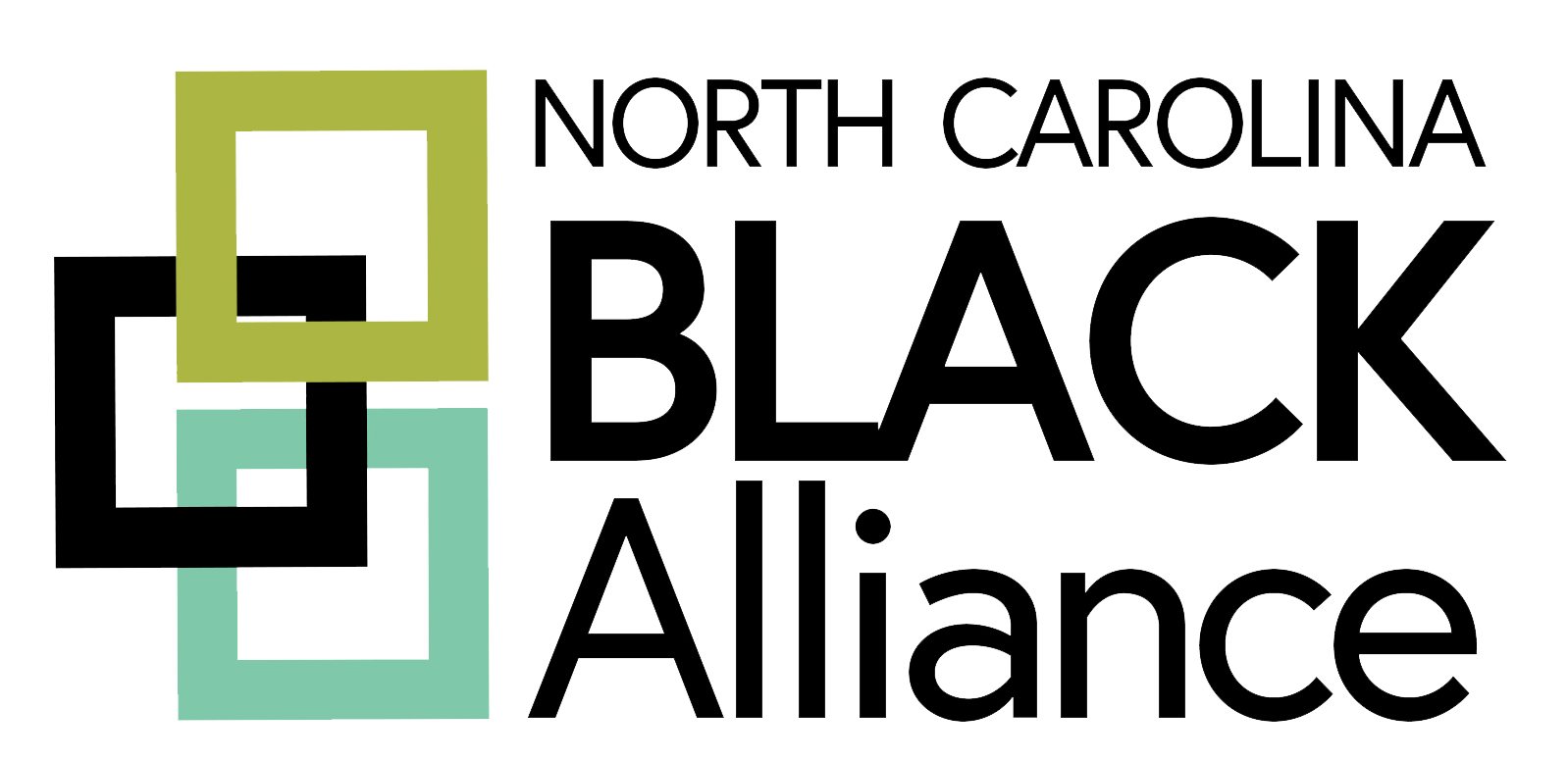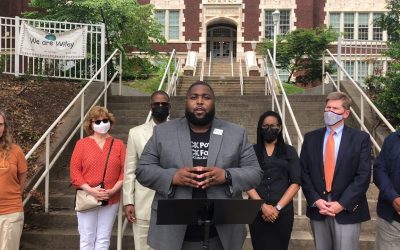Crime and Justice
The North Carolina Black Alliance believes all citizens desire an environment that is safe, healthy and free of crime. We are committed to the diversity of our courts, the proper response to youth violence and gang initiatives in our schools and communities, fairness in enforcement, including eliminating racial profiling practices, and ending sentencing disparities. Learn more about our commitments.
Core Program: Life Without Parole
Currently, there are 225 people eligible for judicial review. In partnership with Emancipate NC, the North Carolina Black Alliance piloted a program that builds a process that’s embedded with racial justice and racial equity. It’s important that eligible persons receive a fair opportunity during the judicial review process.
Issues Impacting Crime & Justice
Racism in the Criminal Justice System
The criminal justice system’s pervasive problems with racism start before the first contact and continue through pleas, conviction, incarceration, release, and beyond. The net effects of history’s injustices are staggering. According to statistics the NAACP examined, although Black people make up 13.4 percent of the population, they make up:
- 22 percent of fatal police shootings,
- 47 percent of wrongful conviction exonerations, and
- 35 percent of individuals executed by the death penalty.
African Americans are incarcerated in state prisons at five times the rate of whites. Black men face disproportionately harsh incarceration experiences compared to prisoners of other races. Racial disparities are also noticeable among Black youth, as evidenced by the school-to-prison pipeline and higher rates of incarceration for Black juveniles.
Pretrial Release and Sentencing Policies
Further, pretrial release and sentencing policies and practices are a root cause of mass incarceration in the United States. Moreover, these inflexible and punitive policies have disparate effects on the poor and people of color, are not cost-effective, and often result in punishment that is disproportionate to the seriousness of the crime.
Source: Brookings.edu
Biased Prosecutors, Lawyers, Jurors and State Court Judges
State courts adjudicate the vast majority of criminal cases. Nearly all felony convictions — 94 percent — occur in state courts, including 99 percent of rape cases and 98 percent of murder cases.1 The arbiters of these cases, state court judges, are mainly elected. Nationwide, 87 percent of state judges face elections, which occur in 39 states.2
Given the extraordinary power state court judges exercise over the liberty, and even lives, of defendants, it is vital that they remain impartial. But mounting evidence suggests that the dynamics of judicial elections may threaten judges’ ability to serve as impartial arbitrators in criminal cases. (Source: BrennanCenter.org)
For prosecutors, bias shows up in charging decisions, pretrial and trial strategies, and closing arguments. For public defenders, bias can alter case evaluation, client interaction, and settlement. In the school-to-prison pipeline, bias can affect suspension and exclusion, referral to law enforcement, disparities in juvenile justice, differences in diversion and retention, placement in locked facilities, terms of probation and trial as adults, presentence reports, sentencing, prison discipline and even the death sentence. Biases in the judicial system can begin with lawmaking, then [move on to] judges, lawyers, and jurors. (Source: AmericanBar.org)
Mass Incarceration
- The U.S. spent $87 billion on jails and prisons in 2015.
- The prison population is 11 times higher than it was 50 years ago, greatly outpacing the increase in our overall population.
- The U.S. is the only country in the world where kids as young as 13 have been sentenced to life imprisonment without the possibility of parole.
- Spending on police has tripled over the last 40 years.
- A Black person is 3.73 times more likely to be arrested for marijuana possession than a white person despite approximately equal rates of use.
- Recidivism rates are high. A May 2018 U.S. Department of Justice report on state prisoner recidivism followed a sample of the 412,731 prisoners released by 30 states in 2005. About 68% were arrested again within three years, 79% within six years and 83% in nine years.
- Improper argument at trial and withheld evidence of innocence were the forms of misconduct alleged most commonly by wrongfully convicted defendants.
- 440 civilians were killed by police in the first six months of 2021 with a total of 1,021 killed in 2020.
Crime & Justice News
It’s Past Time for Action to Address Gun Violence in America
Today marks the grim anniversary of the 2015 mass shooting at Emmanual African Methodist Episcopal Church in Charleston, SC which took the lives of nine Black worshippers, including state senator Clementa C. Pinkney.
Opinion: An attack on North Carolina’s life-saving gun policy
Lt. Governor Mark Robinson and Paul Valone couldn’t be more exploitative in pursuing a disingenuous campaign to undermine the state’s life-saving Pistol Purchase Permit law by calling it racist.


